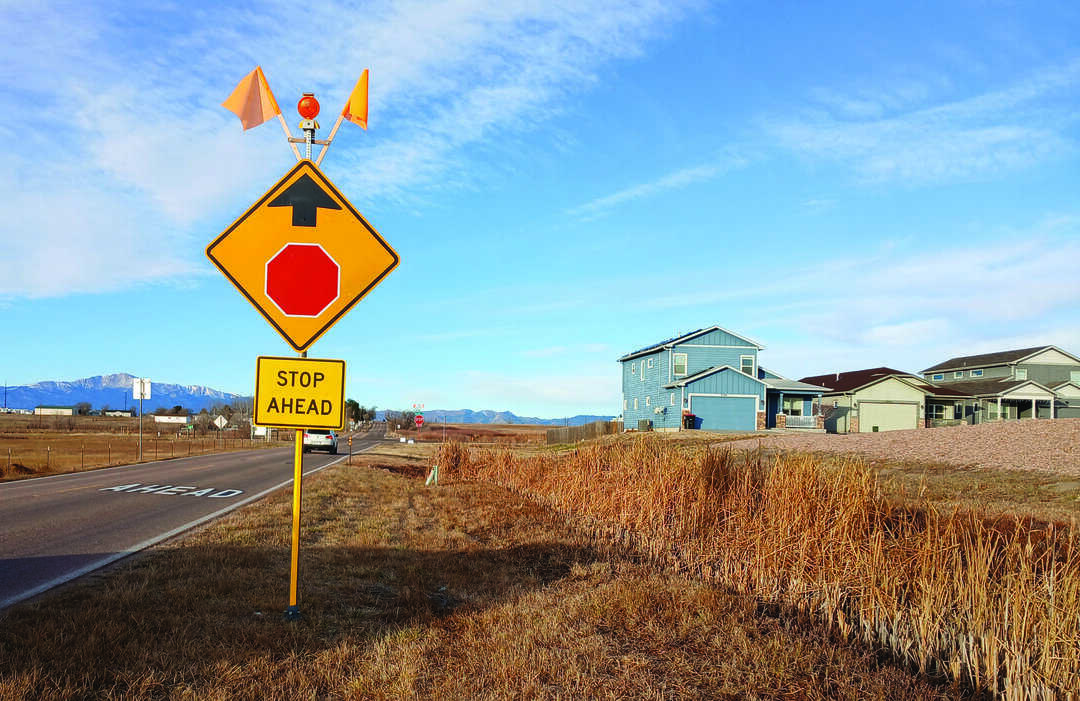Longtime local journalist Bill Radford and his wife, Margaret,live on 5 acres in the Falcon area with chickens, rabbits,dogs, cats, a flock of parakeets, goats and two horses. Contact Bill at billradford3@gmail.com.
With egg prices sky high, largely due to shortages caused by avian flu, I figure a lot of people will start raising chickens so they can have a reliable source of eggs that wonít drain their bank accounts.Itís a theory backed up by The New York Times. ìDemand for chicks that will grow into egg-laying chickens ó which jumped at the onset of the global pandemic in 2020 ñ is rapid again as the 2023 selling season starts, leaving hatcheries scrambling to keep up,î the Times reported. Meanwhile, the Times noted, ìGoogle search in ëraising chickensí has jumped markedly from a year ago.îThe Big R in Falcon confirms a heavy demand for chicks this year. Seth Leis, who is with Egg Makerís Acres (eggmakersacres.com) in Calhan, has also seen a lot of interest from current or prospective chicken owners. ìI absolutely have seen an increase in the sales of all my poultry and supplies,î he said via email. ìIím sold out of pullets (young hens) and have months of reservations.îI wonder, though, if people know what theyíre in for. As the Times mentioned, there was a big demand for chicks in the early days of the pandemic as people hungered for a steady source of eggs or looked for ways to occupy their time at home during lockdowns. But, according to media reports, that was followed by people surrendering or simply abandoning their chickens as they returned to the office or discovered raising chickens was more work than they thought. Rescue organizations struggled to take in all the unwanted chickens, Food & Wine and other sources reported.For prospective new backyard chicken farmers, I recommend doing that ìraising chickensî Google search. There are plenty of articles such as ìRaising Chickens 101,î ìA Complete Beginnerís Guide to Keeping Chickensî and ì30 Things to Know Before You Get Chickens.îWeíve raised chickens since our move to the prairie 10 years ago and actually had a few backyard chickens in town before then. From that perspective, I offer a few tips.First of all, keep in mind that your chicks wonít be laying eggs any time soon; hens typically donít start laying until 18 to 22 weeks old. And as far as saving money by raising your own chickens? Well, donít bet on it.Raising chickens for eggs wonít really save you money. ìThereís almost no way that you can possibly raise chickens on a small scale as economically as the large commercial farms can,î Fresheggsdaily.blog cautions.We have 20 chickens, though that includes some that are past the prime egg-laying age and are allowed to live out their retirement years rather than, say, becoming chicken soup. Thatís because our chickens are as much pets as livestock ó though pets with benefits in terms of giving back egg-wise before their golden years.Last summer, with the chickens that did produce, we ended up with four dozen or so eggs a week. That was a lot more than we would eat, of course, so Margaret started a little egg-selling business at work, selling for $3 a dozen. (I bet she easily could have gotten $5 a dozen.) At the end of the summer, those $1 and $5 bills stuffed in her purse and the corners of her office added up to $140 or so. So the chickens may have at least paid for their feed for those months. In the winter, when egg production slows dramatically, itís a lot different picture.For beginners, there are also upfront costs. ìA checklist for new chicksî from Purina includes a safe, clean, draft-free room or building; heat lamps and/or brooder stove; feeders; waterers; litter and/or shavings; starter feed; and more. You can skip those startup costs by getting adult hens instead of chicks, but they, of course, will need a home, too.Make that home a good one, Leis advises. ìInvest in a good, well-made coop from the start with at least 1 Ω to 2 square feet for each bird you plan on having,î he recommends, while noting that people often end up getting more chickens than originally planned. ìFlimsy cheap coops donít last and you will end up spending more $$ in the long run,î he wrote.Safety is paramount at all stages. I often see accounts on Nextdoor and elsewhere of chickens that fell victim to predators: dogs, coyotes, foxes, raccoons, even birds of prey. We had one chicken that was injured by our visiting sonís pooch, but we were able to save it. Other than that, Iím proud to say we have never lost a chicken to a predator. Weíve made what we consider a chicken Fort Knox, with wire rooftops on the pens to keep anything from climbing and wire along the edges on the ground to keep animals from digging in. Granted, a predator could possibly get to the chickens during their ìfree rangeî time during the day, but even then there are one or two layers of fencing to protect them.While your chickens might not prove to be a big money saver, there are other benefits: the quality of the eggs, for one. And for people like us who donít have a garbage disposal, chickens serve as a living garbage disposal; youíll rarely have food go completely to waste if you have chickens. In a study reported on by Chicken Whisperer Magazine involving 44 backyard chickens, each chicken ate a weekly average of 1.6 pounds of household food scraps; a flock of four backyard chickens, the study concluded, ìwould be expected to consume approximately 332.8 pounds of household food scraps per year, about as much as the average food wasted by each person in the U.S. each year.îChickens also, as Purina notes, are a source of backyard entertainment. ìWhether you are watching a flock of hens from your back porch or helping baby chicks settle into their brooder, a backyard flock can provide entertainment through all life stages,î Purina says.So forget about Netflix; chicken binge instead.





